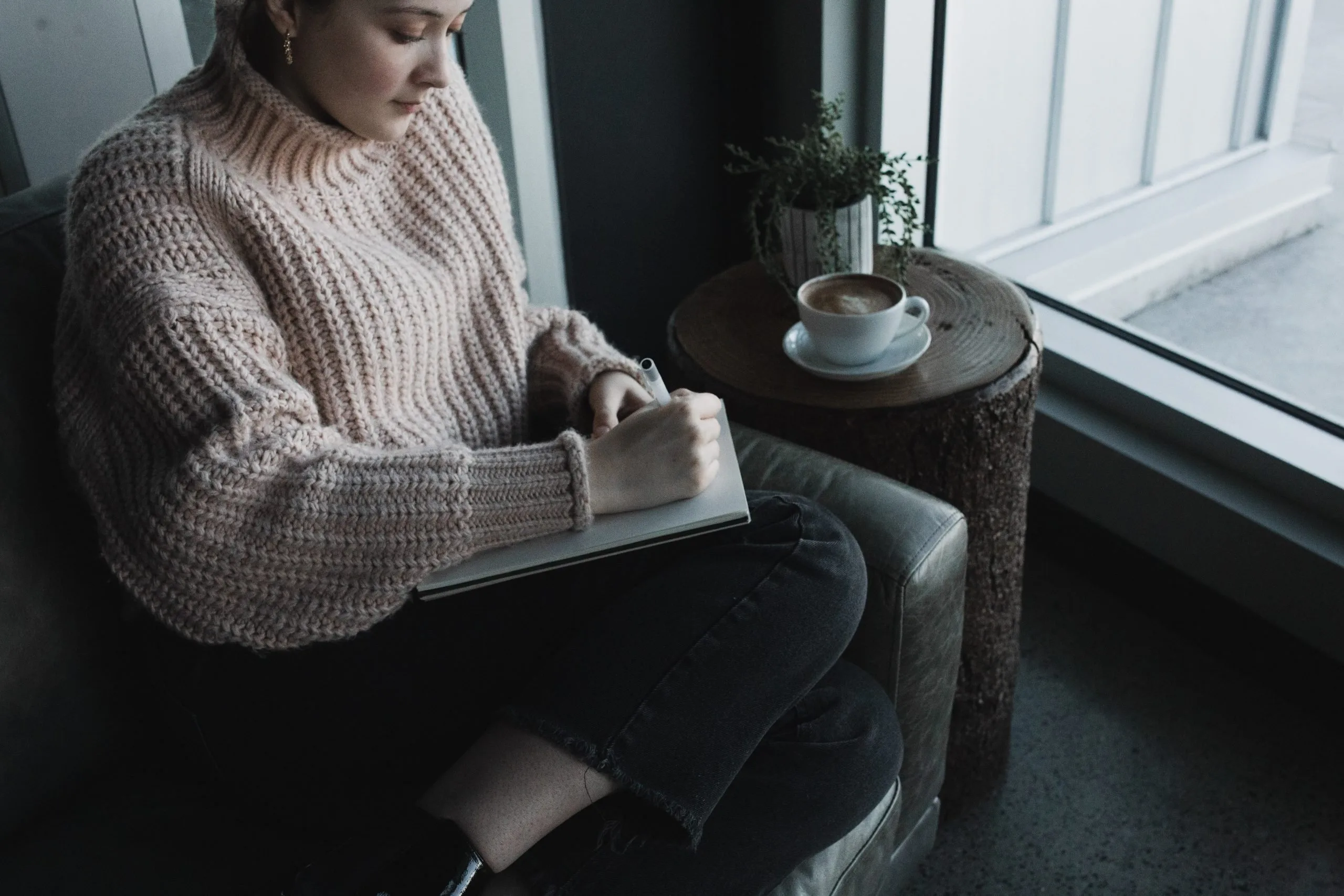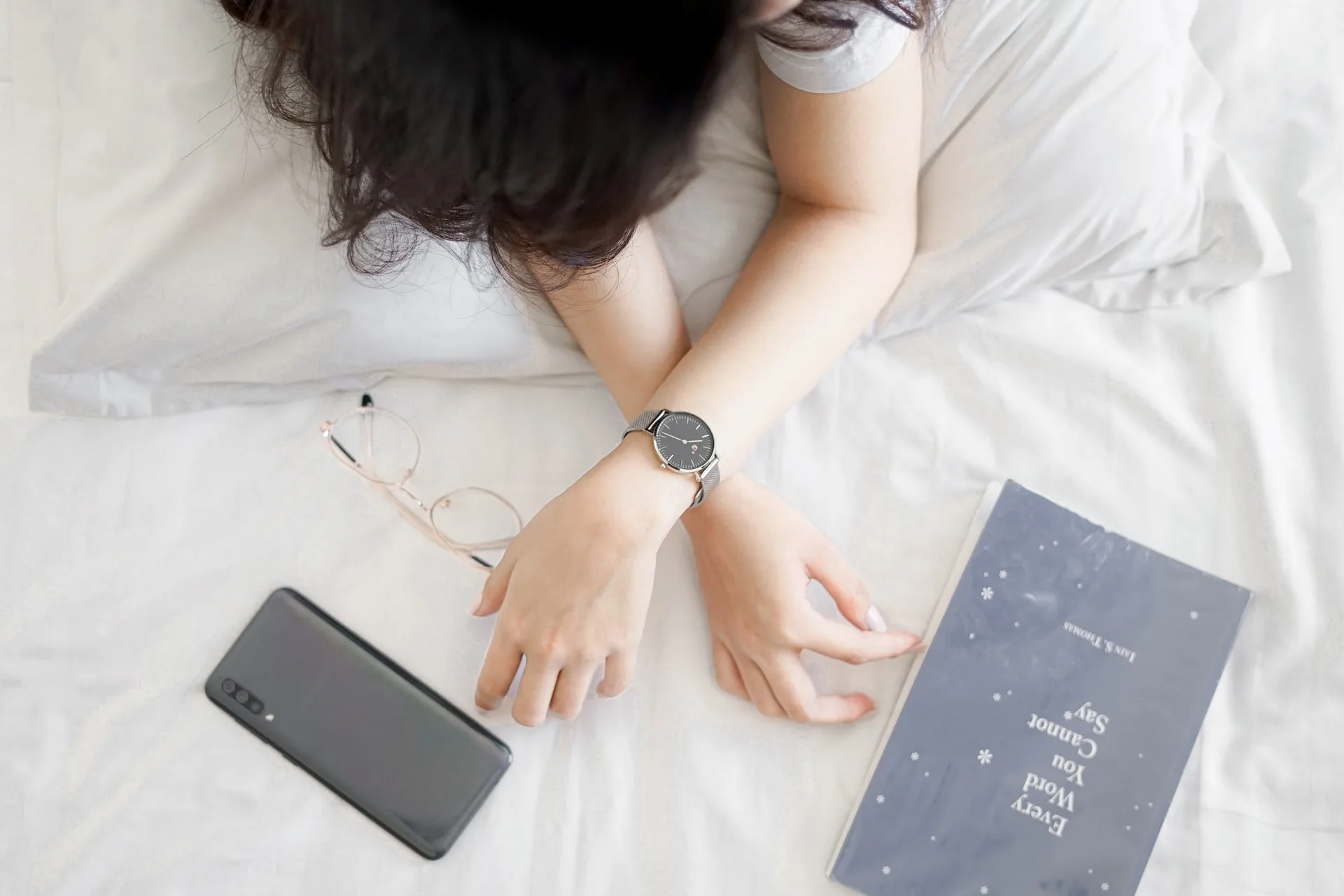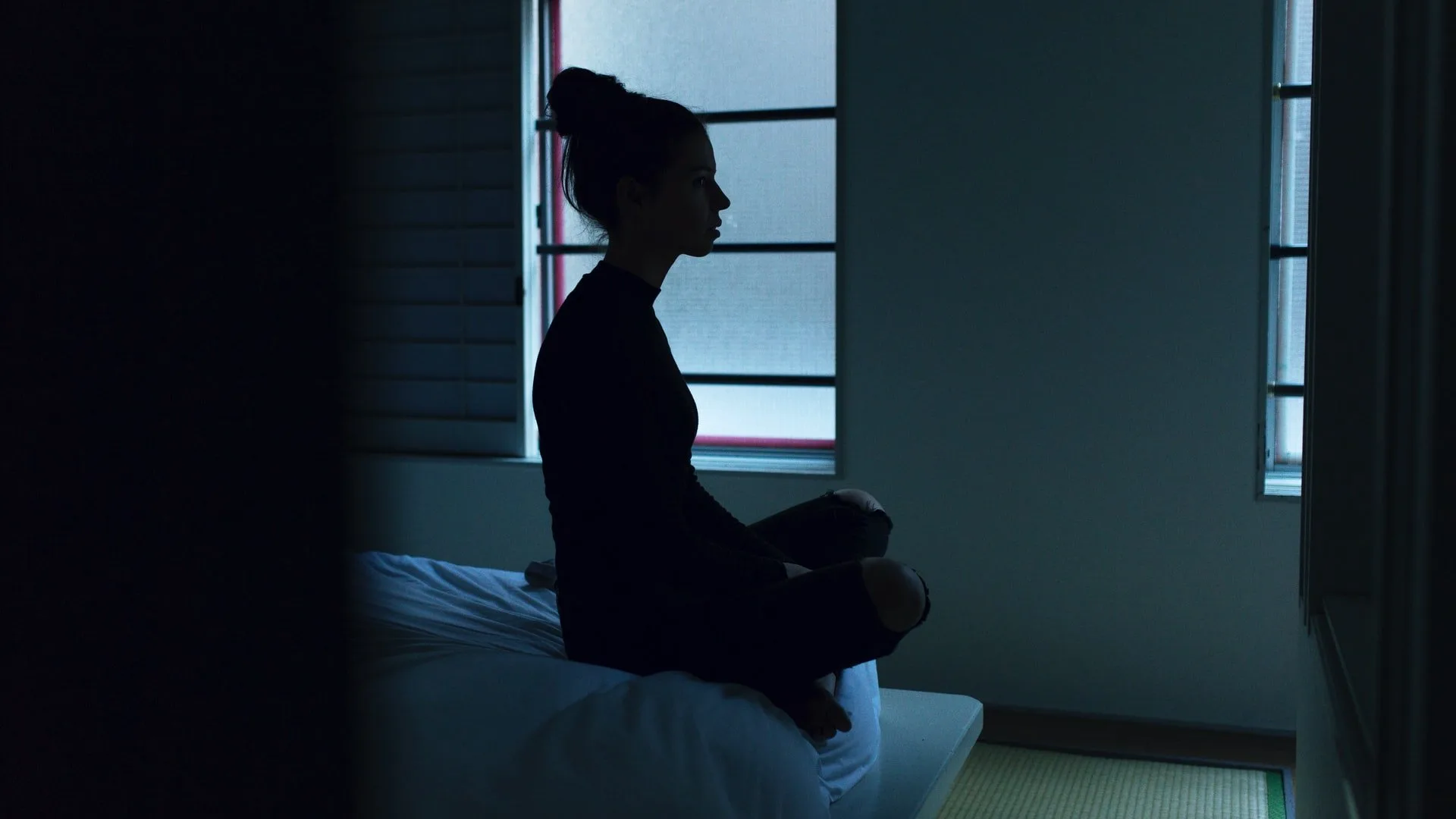Your alarm goes off and you shoot up. Instead of rolling your eyes at the source of the disruptive noise, a knot begins to form in your stomach and an unsettling sense of dread begins to form. While the next person may wake up feeling refreshed and ready for the day ahead, you’re feeling a very different emotion – morning anxiety.
What is Morning Anxiety?
Morning anxiety can be described as waking up with feelings of dread or excessive stress.
While everyone is different, morning anxiety can often manifest as:
- Racing heart rate
- Fatigue or exhaustion
- Excessive concern
- A rush of adrenaline
- Increased blood pressure
- Feeling on edge
- Sweating
- Nausea
- Tense muscles
What causes it?

Photo by Joel Overbeck on Unsplash
There are a few things that can cause you to wake up anxious. These include:
- Nightmares
- Poor sleep
- Racing thoughts about yesterday’s worries
- Hypothetical thoughts about the day ahead
- Heightened stress (cortisol levels are naturally higher in the morning)
9 Tips for Reducing Morning Anxiety
1. Improve your sleep habits
If you really want to start off your morning on a happier note, then it’s important that you get proper sleep. After all, sleep can have an impact on your mental health, so getting proper shuteye may be exactly what you need to prevent morning anxiety.

Photo by We-Vibe WOW Tech on Unsplash
If you want to ensure better sleep, try to:
- Avoid watching TV or any form of technology at least two hours before bed.
- Adopting a relaxing bedtime routine
- Maintaining the same bedtime, even on weekends
- Using your bed only for sleep and sex
- Using essential oils
2. Wake up earlier for alone time
Sleeping through your alarm clock and realizing that you’re late for work may trigger anxiety, so why don’t you try waking up earlier than usual?
Doing so will help you avoid any potential lateness stress, and you’ll also have extra time to prepare for the day ahead with a calmer mindset. Use this extra time to meditate or to just come in tune with your feelings and emotions.
3. Move your body
Starting your day by breaking a little sweat may be exactly what you need to beat morning anxiety.
Exercising releases endorphins and these brain chemicals can help to alleviate feelings of stress and anxiety. If you’re not up for running around your neighborhood with a face mask, then you can hop onto an online class and get your workout in.

tache/shutterstock
4. Take a deep breath
The best part is you don’t even have to get out of bed for this one – you can do it as soon as you wake up. Deep breathing is relaxing, and it can help to ease any anxiety that you’re feeling about the day ahead.
The “4-7-8” technique is an easy and effective breathing exercise. Simply sit up straight and place your hand on your stomach. Then inhale deeply for four seconds, and watch as your stomach and chest rise. Hold your breath for seven seconds; then slowly exhale for eight seconds (or longer).
5. Journal
Do you have a million thoughts racing through your head as soon as you wake up? If that’s the case, you might want to start keeping a notepad and pen on your nightstand.
Journaling is a nice therapeutic exercise that can help you manage your stress, and it can be a great way to get your worries out. You’d be surprised how small a problem actually is once you write it down and read it back to yourself.

Photo by Alexandra Fuller on Unsplash
7. Eat breakfast
There’s a reason why it’s the most important meal of the day.
What you eat for breakfast can definitely help to set the tone of the day and eating the right foods may help to alleviate some early morning-jitters. Enjoy a breakfast that incorporates zinc, magnesium, vitamin B, or omega-3 fatty acids as they have been found to help alleviate anxiety (1).
So why don’t you try incorporating some berries, oatmeal, and avocado in your breakfast meal?
8. Cut back on caffeine and sugar

Photo by Taylor Franz on Unsplash
According to an article from The Ohio State University, it appears that caffeine may worsen stress and anxiety levels in people, regardless of whether they consume caffeine regularly.
With that said, it may be advisable to monitor your caffeine intake or to avoid it altogether. Rather opt for chamomile or green tea to start your day. if you insist on drinking coffee, then make sure that you stop drinking it by at least 2 pm.
9. Change your phone habits
Those pesky devices that we can’t seem to live without are seriously messing with our anxiety levels, no matter how much we want to claim that they keep us informed.

Photo by Timothy Rubby on Unsplash
Whether it’s news notifications, presidential tweets, or a conversation in a group chat – the fact is that you don’t always have to be on your phone, especially first thing in the morning. Waking up to read about the latest natural disaster on the timeline is a sure way to ruin your day. Not to mention that the blue light that your phone produces can also mess with your sleep, so your phone has been affecting your anxiety levels.
The fact is that you need to rest, as do your devices, so why don’t you turn off those unnecessary push notifications? What’s more, get into the habit of not checking your phone first thing in the morning and instead of meditating, exercising, or doing the deep breathing exercising mentioned above.
What if I have morning anxiety every morning?
If you start to notice that you’re waking up feeling anxious every morning and that this feeling is starting to affect your day-to-day life, then you may need to reach out to a professional as consistent anxiety may be a sign of an underlying anxiety disorder.
References
Blampied, M., Bell, C., Gilbert, C., Boden, J., Nicholls, R., & Rucklidge, J. J. (2018). Study Protocol for a Randomized Double-Blind, Placebo-Controlled Trial Exploring the Effectiveness of a Micronutrient Formula in Improving Symptoms of Anxiety and Depression. Medicines (Basel, Switzerland), 5(2), 56. https://doi.org/10.3390/medicines5020056




![women [longevity live]](https://longevitylive.com/wp-content/uploads/2020/01/photo-of-women-walking-down-the-street-1116984-100x100.jpg)










